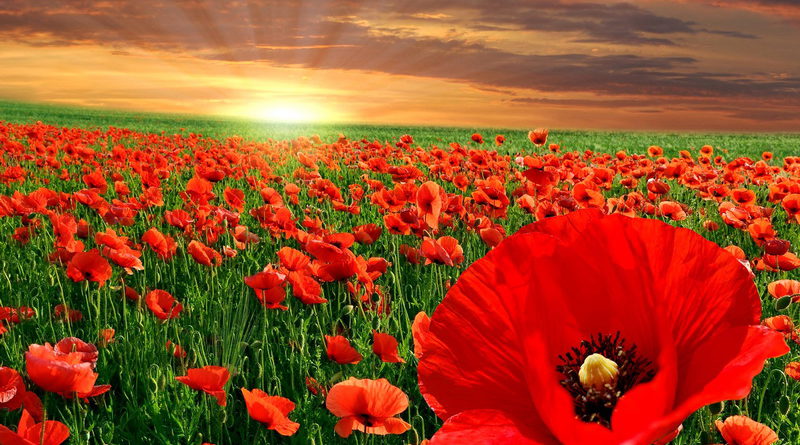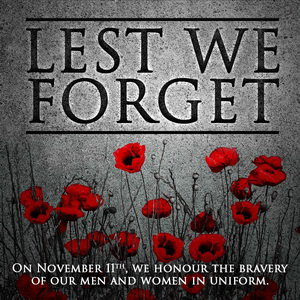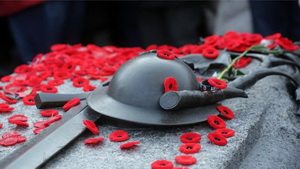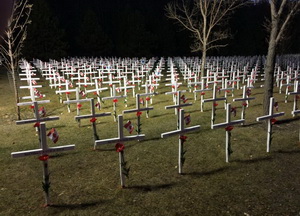Remembrance Day in Canada: 11-11
中文翻译,点击这里
I just learned yesterday that the 11th of November is popularly known as Single’s Day in China. Much is made of the row of four “sticks”: 11-11. It tends to be a day of fun and shopping, especially for young people who may continue to be happy to celebrate their “single status.”
Canada, on the other hand, celebrates the day with some sadness. Canadian young people died in massive numbers in a war that was far from our homeland, but still regarded a threat because it involved our “motherlands” of Europe. The celebration today continues this “remembrance” by honoring all “fallen soldiers” in the major wars since that time. Increasingly, we remember the missing young people on both sides of the conflicts. As necessary as it may be to defend our country and its freedoms, we regard war to be one of the greatest tragedies of human life.
In Canada, we observe a “minute of silence” in our communities at 11:11 am on our Remembrance Day. In some parts of Canada it is an official holiday. Public meetings are held in our communities where the veterans (retired, military people) dress in their uniforms and proudly carry medals on their chests. The names of our local “fallen heroes” are read out loudly for all to remember. This special time of day is matched with the special date which ended the First World War, November 11, 1918 to give date and time as: 11-11 11:11.
After some years of trench warfare, the flat land of Flanders (Belgium) was much destroyed by bombs. After the hostilities ceased, however, beautiful red poppies emerged from the battlefield as the first signs of life and regrowth. It is said that the seeds of the red poppy can lay buried in the soil for a very long time, but when the soil is disturbed, it causes the seeds to sprout, grow, and blossom. So, out of the tragedy of war, the Fields of Flanders brought forth new life with much beauty. The red poppy is the symbol of hope that out of death can come forth new life. It is the most important symbol we use on this Day of Remembrance.
Today, there are large graveyards in Flanders, and other locations, where our family members are buried.
To mark this day, school children often learn to recite a beautiful poem of remembrance of this scene. A Canadian military doctor, John McCrae, reportedly wrote this poem as he sat gazing out on the Flanders battlefield, now dotted with both crosses and the red poppies.
It reads as follows:
Between the crosses, row on row,
That mark our place; and in the sky
The larks, still bravely singing, fly
Scarce heard amid the guns below.We are the Dead. Short days ago
We lived, felt dawn, saw sunset glow,
Loved and were loved, and now we lie
In Flanders fields.
Take up our quarrel with the foe:
To you from failing hands we throw
The torch; be yours to hold it high.
If ye break faith with us who die
We shall not sleep, though poppies grow
In Flanders fields.
Yesterday, I learned of the passing of one of our great Canadian poets and song writers, Leonard Cohen [later confirmed to be November 7]. He recorded this reading of In Flanders Fields to commemorate the 100th anniversary (the centenary) of World War I.
Video version:
Audio only:
Credit: YouTube/Legion Magazine
First published: 2016/11/11
Latest revision: 2022/11/10



